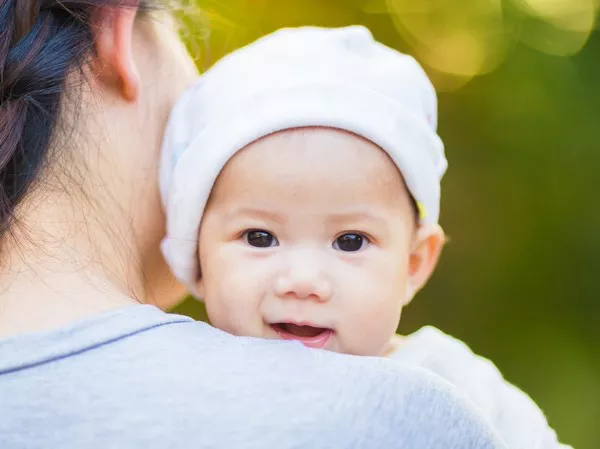Symptoms of a common cold in babies:
This helps parents identify the issue and differentiate it from more serious conditions.
Babies are particularly susceptible to colds, especially during the colder months when viruses thrive. As a parent, it’s crucial to recognize the symptoms of a common cold in your little one. These may include:
Runny or stuffy nose: Your baby may have difficulty breathing through their nose due to congestion.
Sneezing and coughing: These are common signs of a cold as the body tries to clear the airways.
Fussiness: Your baby may become irritable due to discomfort caused by the cold.
Low-grade fever: A slight increase in body temperature is typical with a cold.
Decreased appetite: Your baby may eat less than usual due to nasal congestion affecting their ability to suck and swallow.
Safe and effective home remedies:
While there is no cure for the common cold, there are several steps you can take at home to ease your baby’s discomfort and promote recovery:
Use a cool-mist humidifier: Adding moisture to the air can help relieve congestion and ease breathing for your baby.
Saline drops and bulb syringe: Saline drops can help loosen mucus in your baby’s nose, making it easier to remove with a bulb syringe.
Ensure proper hydration: Offer your baby plenty of fluids, such as breast milk, formula, or water, to prevent dehydration.
Over-the-counter medication information:
It’s essential to be cautious when considering over-the-counter medications for your baby’s cold. Many cold medications are not safe for infants, and those that are may only be suitable for specific ages and dosages. Always consult your pediatrician before giving any medication to your baby. Some safe options may include:
Acetaminophen (Tylenol): This can help reduce fever and relieve discomfort in babies older than three months. Always follow the recommended dosage based on your baby’s weight.
Ibuprofen (Advil, Motrin): Ibuprofen may be used for babies older than six months to reduce fever and relieve pain. Again, follow the dosage instructions provided by your pediatrician.
When to see a doctor:
While most colds resolve on their own with home care, there are certain signs and symptoms that indicate a need for medical attention:
High fever: A fever higher than 100.4°F (38°C) in infants under three months old or higher than 102°F (38.9°C) in older babies warrants a call to your doctor.
Difficulty breathing: If your baby is struggling to breathe, breathing rapidly, or wheezing, seek medical help immediately.
Dehydration: Signs of dehydration include dry mouth, fewer wet diapers, sunken eyes, and lethargy.
Comforting techniques:
During a cold, your baby may feel miserable and in need of comfort. Here are some soothing techniques you can try:
Cuddling: Holding your baby close can provide warmth and security, helping them feel more comfortable.
Singing lullabies: The gentle rhythm of a lullaby can be calming for both you and your baby.
Warm bath: A warm bath can help relax your baby’s muscles and ease congestion. Make sure the water is not too hot and supervise your baby at all times.
Prevention tips:
Preventing colds in babies is not always possible, but you can take steps to reduce their risk:
Frequent handwashing: Wash your hands regularly, especially before handling your baby or preparing their food.
Avoid sick individuals: Try to keep your baby away from people who are sick, especially those with cold or flu symptoms.
Keep surroundings clean: Regularly clean and disinfect commonly touched surfaces in your home to prevent the spread of germs.
Conclusion
By following these tips, you can help your baby feel more comfortable during a cold and reduce the risk of future illnesses. Remember, if you have any concerns about your baby’s health, always consult your pediatrician for guidance and support.
FAQs
How long does a cold last in a baby?
Colds in babies typically last around 7 to 10 days, but symptoms can linger for up to two weeks.
How can I speed up my baby’s cold?
To help your baby recover faster from a cold, ensure they get plenty of rest, keep them hydrated, use a cool-mist humidifier, suction their nasal passages, and give them appropriate doses of infant pain relievers if needed. Always consult a pediatrician for guidance.
What to do if baby is feeling cold?
If your baby feels cold, dress them in layers, ensuring they’re not overheated but also adequately warm. Use blankets and hats as needed, and keep the room temperature comfortable. Skin-to-skin contact can also help regulate their body temperature. If you’re concerned, consult a pediatrician.
Related topics:
- Understanding Infant Colds: Remedies and Safety Measures
- Understanding the Contagious Stage of a Cold
- The Best Cough Syrup for Infants: A Comprehensive Guide


